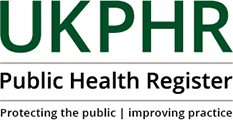Health impacts of flooding
It is not only your property and possessions that can be damaged by flood waters – flooding can also have lasting impacts on your health and wellbeing.
So when thousands of homes across the UK were devastated by floods as a result of December’s record-breaking rainfall, I looked to see news reporting of the health impacts that the misery of such water invasion causes. But there was very little reporting of health and wellbeing – why was that?
Physical and mental health may be affected during and after flooding and studies have shown that stress may continue for a long time after the water has receded. It is important to be aware that the impact on health is often not immediately obvious.
Flood water can be treacherously fast-flowing and is very likely to be contaminated with bugs so there are risks of drowning, injury and disease for anyone who comes into contact with it.
According to the AA, a third of flood-related deaths are by drowning in a vehicle.
Reports of raw sewage flowing into some flooded homes raises the possibility of outbreaks of unpleasant gastrointestinal infections. Human sewage can flow into flood water as it spills out of overflowing drains, septic tanks and toilets. Flood water may be contaminated because it becomes mixed with animal waste as it washes through farmland. As a result, floodwater is likely to be polluted and swallowing contaminated flood water can cause diarrhoea, vomiting and stomach cramps.
In reality, infections from floods in this country are rare where proper precautions are taken and harmful agents in flood water tend to become much diluted.
Perhaps, then, there was so little reporting of health impacts of flooding because there was nothing unusual to report with regards to flood-related death, injury and illness.
Alternatively, perhaps there has been a cause and an effect that the reporters have missed. Or perhaps public health teams did their jobs so well during the flooding that there was little or no “effect”. Infection problems arising from floods in this country are rare where public health practice is effective and public health guidance is followed.
However, perhaps there is another explanation. Perhaps the greatest impacts of the recent flooding on health and wellbeing have been invisible, or their effects have not yet been fully appreciated.
Carbon monoxide poisoning is a silent killer which may occur during flood clear-ups. Pumps and generators used to dry buildings give out exhaust gases that can cause potentially lethal carbon monoxide poisoning if they’re not used properly. Awareness of this danger is higher now than in past years and let us hope that we will not learn later that there were deaths from this cause arising out of the 2015 flooding.
Flooding can have profound effects on people’s mental health and well-being, and this particular impact of flooding is difficult to recognise, may develop after the news reporting has finished and its cause could be missed when eventually a diagnosis is made.
Flooding can affect people of all ages and while most go on to recover with the support of their families, friends and local community, for others the longer-term, indirect effects on their health, relationships and welfare can be far reaching.
Whilst distress may be a common reaction for people following a flood, most people are resilient and cope with being flooded despite being distressed by it. A minority of people may go on to develop mental health problems. If a person’s symptoms persist, they should visit their GP who can help to identify further sources of support.
While experiencing a flood is the primary cause of stress for people who are affected, the stress and strain associated with dealing with cleaning up and recovery may also be a problem. This is particularly the case if recovery and rebuilding is managed poorly by responding agencies and private companies. The period after an emergency response has ended and when people must rely on the private sector for continued recovery has been called the ‘Recovery Gap.’
Research has shown that children and young people can suffer from mental ill-health following a flood and they may display different symptoms to adults. Symptoms can include:
separation anxiety; irregular sleeping patterns / nightmares; behavioural problems such as becoming withdrawn, increased aggression, bedwetting; development of habit forming behaviours such as routines / rituals about washing and academic performance may suffer.
The effects of being separated from family and friends, disruption to family life and daily routine and the loss of pets and possessions can all have a dramatic effect on children and can be ongoing. The possibility of having to move to temporary accommodation and the change this will bring to lifestyle can also add to stress and anxiety
Overall, our knowledge of the mental health impacts of flooding is too little understood. After the floods during the winter of 2013 to 2014, Public Health England announced a 10-year study to help understand how communities were affected by the storms and floods and what the effects are on people’s health and daily living. The results from the study will help with future planning for the impact on people of future severe weather events, including how best we can help communities recover more quickly.
We cannot wait 10 years though to address the known mental health risk following severe flooding. It is likely we will experience more frequent and more severe flooding during the decade ahead. It seems therefore that all those who can be expected to respond to future floods – reporters as well as health and other services’ responders – need to be ready to address what just might prove to be the greatest health impact of flooding, namely the harm to mental health and wellbeing.



Comments are closed.